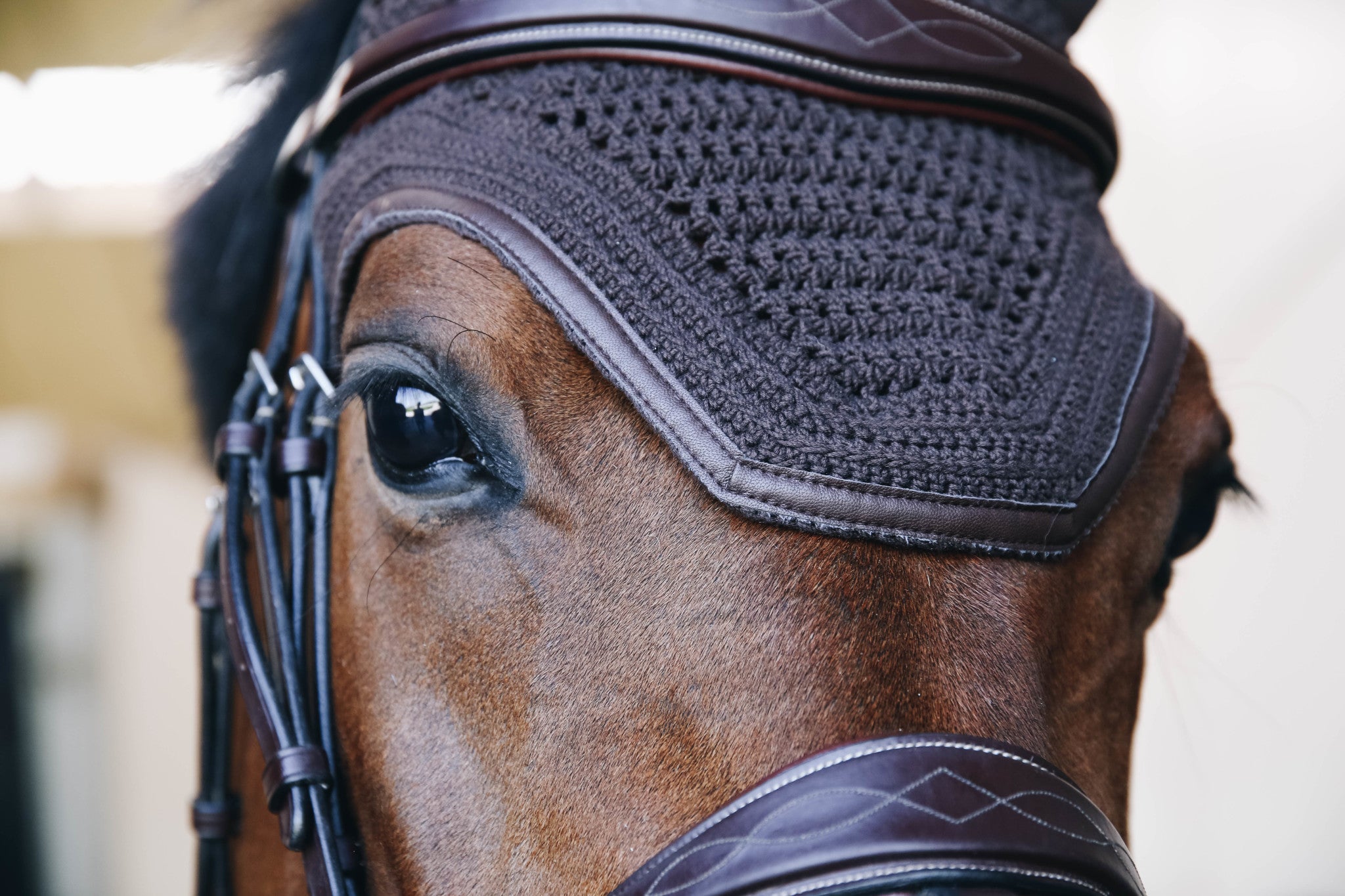
What Are Horse Ear Bonnets for? Understand Their Purpose
Share
When you see horses out in the field or during shows, you might notice some sporting an interesting piece of gear over their ears. Horse ear bonnets are becoming increasingly popular among riders and caretakers. As health-conscious pet owners, understanding their **purpose** and benefits is essential for ensuring the comfort and performance of your equine friend.
But what are horse ear bonnets for? At their core, these bonnets serve to protect horses from irritants such as flies and other insects. They also help reduce distractions in noisy environments, making them a valuable accessory not just for comfort but also for performance. Today, well explore every aspect associated with horse ear bonnetshow they work, when to use them, and their effects on a horse's overall well-being.

The Purpose of Horse Ear Bonnets
Initially created as a functional item, horse ear bonnets have evolved into a stylish addition to equine gear. Let's delve deeper into the purposes they serve:
1. Protection Against Insects
One of the key reasons horse ear bonnets are used is to protect against flies and other insects. Flies are not just a nuisance; they can cause serious irritation, leading to discomfort and distraction while the horse is working or competing. Bonnets act as a barrier, protecting the sensitive ears of horses from bites and stings.
2. Noise Reduction
Horses are prey animals and can be easily startled by sudden or loud noises. Certain ear bonnets are designed to help muffle ambient noise, which can lead to a calmer and more focused horse during events such as shows or training sessions.
3. Hypoallergenic Material
Many bonnets are made from hypoallergenic materials that minimize the risk of allergic reactions in horses. This is crucial for maintaining the health of your horses skin and fur during extended wear.

Types of Horse Ear Bonnets
Understanding the different types of horse ear bonnets can help you choose the right one for your horse:
1. Fly Bonnets
These are specifically designed to keep pesky flies away from a horses face and ears. They often come with mesh sections, allowing for airflow while helping keep insects at bay.
2. Noise-Reducing Bonnets
Made from thicker materials with sound-dampening properties, these ear bonnets are excellent for horses participating in noisy environments like competitions.
3. Fashion Bonnets
Fashion bonnets not only serve a functional purpose but also come in various colors and designs that add a touch of personality to the horse's gear. They are often used in the show circuit to make a stylish impact.

How to Choose the Right Ear Bonnet?
Finding the right ear bonnet for your horse depends on a variety of factors:
- Size: Ensure the bonnet fits well. A poorly fitted bonnet can be uncomfortable and counterproductive.
- Material: Look for soft, breathable fabrics that wont irritate the skin.
- Functionality: Consider what you most need: insect protection, noise reduction, or style.
For more on how to select gear for your horse, check out where nosebands should sit.

Using Horse Ear Bonnets Safely
While ear bonnets provide benefits, it is crucial to follow these safety tips:
- Always check for signs of irritation or discomfort regarding its fit.
- Remove the bonnet during downtime to give your horses ears a breather.
- Keep the bonnet clean to prevent skin irritations. Regular **grooming** is important.
If you're interested in the best grooming practices, read more at grooming your horse.
Common Misconceptions About Horse Ear Bonnets
Many myths surround horse ear bonnets. Lets debunk some of the most common:
1. Bonnets are Just for Shows
While they are popular in competitions, ear bonnets are also great for training and daily rides.
2. Bonnets are Always Uncomfortable
As long as you choose the right size and material, most horses find them comfortable.
3. Bonnets are Only Necessary in Summer
Flies can be an issue year-round; thus, bonnets can be beneficial in any season.
FAQs About Horse Ear Bonnets
How do I measure my horse for an ear bonnet?
Measure from the base of the ears to the middle of the forehead. Refer to specific size charts provided by manufacturers.
Can I leave the bonnet on during turnout?
Generally, its better to remove the bonnet during turnout to prevent tangled manes and ensure comfort.
How often should I clean my horse's ear bonnet?
It is recommended to clean it after every use or at least weekly, depending on how often it's worn.
For further insights into horse care, visit basic horse care guide.
As an Amazon Associate, I earn from qualifying purchases.
